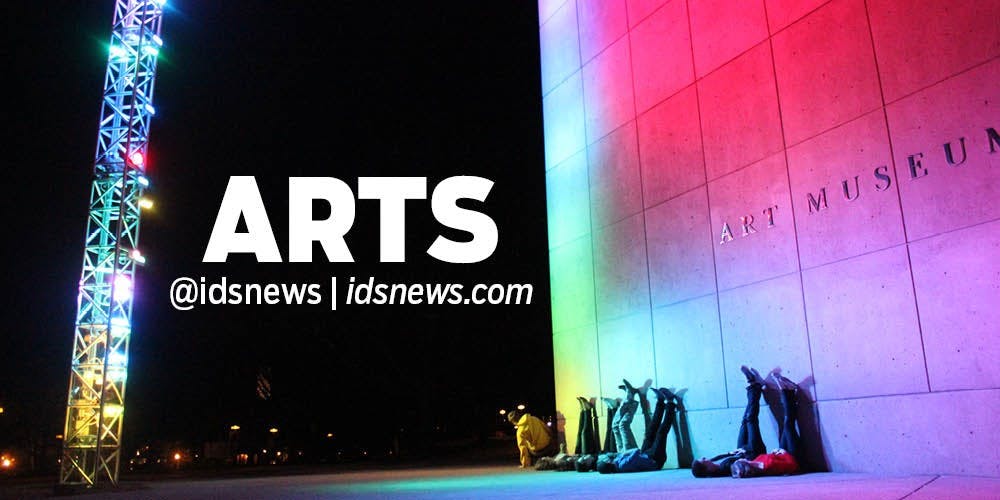After protests broke out around the world in the wake of the killing of George Floyd in Minneapolis, organizations on IU’s campus issued statements showing support for the Black community, including the IU Department of Theatre, Drama and Contemporary Dance.
The post went up June 1 on the department’s social media platforms, but its followers were critical. Instagram users called out the department’s lack of acknowledgement of the Black Lives Matter movement and poor representation of students who are Black, Indigenous and people of color on stage.
Two days later, the IU theatre department posted an amended statement on Instagram to show support for their BIPOC students, acknowledging they have neglected to choose shows representing marginalized groups in the past, according to a statement from Linda Pisano, chairperson and professor at the department of theatre, drama and contemporary dance. Pisano said the department is committed to implementing change, specifically through the chosen repertoire.
“What better year, and what better way to engage in these discussions?” Pisano said.
The College of Arts and Sciences will explore democracy in coursework and programming with Themester, a program that connects studies within the college current social and political issues. The IU theatre department will participate with its first play of the season titled “Asylum Anguish: Stories from the Border” in September, which will share testimonies from asylum seekers who spent time in the U.S. Immigration and Customs Enforcement custody.
“When you think about the stories of refugees, those seeking asylum, it’s unacceptable,” Pisano said. “We need to have really difficult discussions this fall, we need to talk about theater as a place for discussions.”
Leraldo Anzaldua, assistant professor of Theatre, Drama, and Contemporary Dance Movement and Stage Combat, said the season will draw in new audiences and open up opportunities for discussion about and exploration on a variety of topics presented in the plays, such as family and friendship.
“This is a new opportunity to see stories they may or may not connect to,” Anzaldua said.
Anzaldua, along with co-creator Sharai Bohannon, house manager and director of patron services, will curate a series titled “Amplified: A Series of Plays by Black Authors.” The series, which is designed to showcase multiple works from Black authors, will run during both semesters and amplify stories of the Black experience, which have not been heavily represented on the IU stage.
Although individual play titles have not been announced yet, Anzaldua said to expect a variety of content that will be both gut-wrenching as well as heartwarming.
“There will be some content that will be really thought-provoking,” Anzaldua said. “And things that will be really connective to everyone, as human beings.”
Part of Anzaldua’s job as a co-creator is to identify the message of the play and character arcs in the story. He intends to include the cast in team discussions to identify what they can bring to make the experience engaging for audiences.
“My job is to identify why they are there, saying the things they are, and how they grow and change,” Anzaldua said. “Each individual actor brings their own relatability to the content of the story to present it with truth and grace.”
Other shows include feminist play “Bonnets: (How Ladies of Good Breeding Are Induced to Murder),” a “Solo Spotlight Series” to showcase individual members of the department, a pop-up show around campus designed to engage students called “Street Scenes,” an investigative piece into 20th century art and architecture called “More Perfect Places,” Shakespeare's "Twelfth Night," a new play festival featuring MFA playwrights, two dance concerts and a spring musical.
Madison Colquette, staff dramaturg, said theater at IU has historically been based in white, eurocentric techniques and literature, which has marginalized BIPOC students and staff. The diverse selection of plays this season will showcase different stories relevant to both existing and new audiences.
“One of the great opportunities this season has is presenting stories that may be more relatable to different audiences,” Colquette said. “There are certain demographics that always come to see theater, so now we’re opening opportunities to other people that may not go to the theater regularly now can connect to different stories.”
The online performances present an opportunity to reach audiences on campus and beyond.
“Rather than educating, we’re looking to engage,” Colquette said.
Audition information can be found here.






